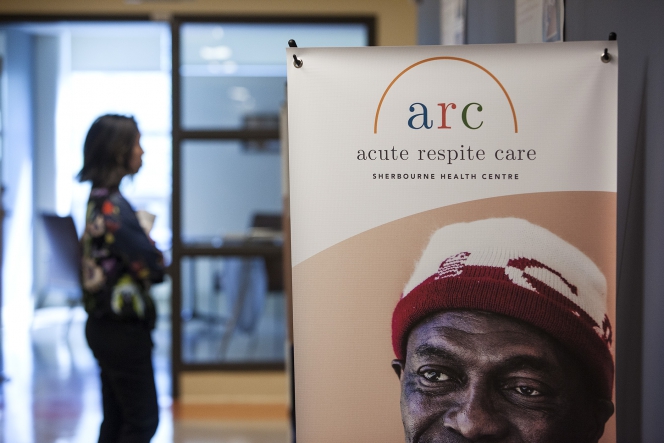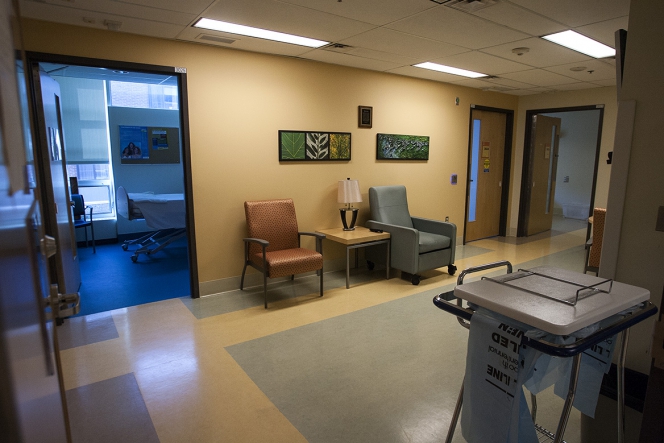It was Lesley’s last day at Sherbourne Health Centre’s Acute Respite Care (ARC) program. She made a chocolate cake to celebrate the occasion.
“I recently got rebuilt,” she told a crowd of people gathered to celebrate the program’s expansion.
“I’m predictably really looking forward to going home,” she said. “But at the same time, I haven’t been in a hurry to go home because this place has been marvelous for recuperating.”
ARC, formerly known as the “Infirmary,” is a short-term care program that provides patients without permanent homes with 24/7 nursing care and support. Its clients have chronic conditions such as HIV or diabetes, are undergoing cancer treatment or are recovering from gender-confirming surgery. It’s the only program of its kind in Canada.
Sherbourne Health Centre recently unveiled an expansion of the program that provides more beds for patients and allows them to provide better care for trans patients in particular.
“We’re really now trying to create a space that’s inclusive and welcoming for everyone,” says Melanie Oda, the director of ARC. “There’s a need for medical respite for homeless and underhoused, and clearly there’s going to be a need for people undergoing transition-related surgeries.”

The upgrades, which were funded by the Ontario Ministry of Health, have allowed for the creation of four new beds in addition to the 10 beds previously available. Gender-markers were removed from the suites and a bathing facility was installed specifically with the needs of people who have undergone gender-confirming surgery in mind.
One of the spaces includes a plaque recognizing the work of trans activists.
“One of the things that came up in that process was acknowledging people, activist leaders, people who have been working for years and years to increase access to care for trans folks,” says Graeme Imrie, director of corporate affairs for Sherbourne Health.

The Infirmary opened its doors in 2007 to patients with chronic conditions. In 2011, it began to serve people undergoing cancer treatment and in 2016, people recovering from gender-confirming surgery began to be served.
What hasn’t changed is the commitment to a harm reduction model and an emphasis on addressing the social determinants of health.
“Their health issue is going to be tended to,” says Oda. “But we also want to see if there’s anything we can do to support them in their recovery to health and wellness in their other domains.”

 Why you can trust Xtra
Why you can trust Xtra


